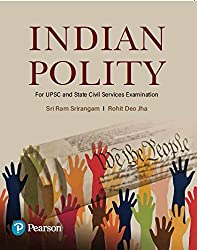Definition of fundamental rights
Fundamental rights are a set of rights that are recognized by the Apex Court (Supreme Court of India) as it requires the highest degree of protection from the government.
The Fundamental Rights are also the basic human rights to all citizens that apply irrespective of race, gender, etc.

The Fundamental rights have many sources that include the “England bill of rights“, “United States Bill of Rights“, “France’s Declaration of Rights of Man” and “Rights of Women“.
What are the Fundamental Rights in Indian Constitution?

Indian fundamental rights are groups of rights that are recognized by the constitution, as requiring a high degree of protection from the government. It primarily protects the individual from any arbitrary state actions.
The Fundamental Rights in Indian Constitution are a kind of Guarantee for all of the people of the country that they have their respect, dignity in an equal term. In the constitution of India, Part 3, there are fundamental rights described in Articles 12 to 35. The Fundamental right rights Part 3 is known as the Magna Carta of India.
It is to safeguard the interest of the Indian people. It guarantees its citizen equality, protect its citizen from exploitation, practices the religion of their choice, access to education, maintains their privacy, access to the law and its remedies, and maintains their dignity.
If a person feels that their fundamental right is violated, they can direct the court of various levels. There are six fundamentals that are stated in Article 12-35 of the Indian Constitution.
Number of Fundamental Rights: 6
Fundamental Rights in Indian Constitution (Article 12-35)
- Right to Equality
- Right to Freedom
- Right against exploitation
- Right to Freedom of Religion
- Cultural and Education Right
- Right to constitutional Remedies
1. Right to Equality (Article 14-18)
Tight to equality is the most fundamental right. It means to everyone is equal before the law and equal protection of the law. There is no prohibition or discrimination on the basis of religion, caste, place of birth, gender to get justice from the court.
Equality Before Law
According to the Constitution, “The State shall not deny to any person equality before law or equal protection of laws within the territory of India”.
‘Equality before law‘ – This means that no one is above the law and all are equal in front of the law. Also, every individual has equal access to the judiciary.
‘Equal protection of laws‘ – This means if two people from different religions or communities commit the same crime, both of them will attract the same punishment. There shall be no discrimination.
- No Discrimination on the grounds of Religion, Race, Caste, Sex, Place of Birth or any of them
- Equality Of Opportunity In Matters Of Public Employment
- Abolition of Untouchability
- Abolition of Titles
Article 14 – Equality before law.
Article 15 – Prohibition of discrimination on grounds of religion, race, caste, sex or place of birth.
Article 16 – Equality of opportunity in matters of public employment.
Article 17 – Abolition of Untouchability.
Article 18 – Abolition of titles.
2. Right to Freedom (Article 19-22)
The constitution of India mentions six different types of freedom that are ” freedom of speech and expression, freedom to assemble peacefully without arms/weapons, freedom to form associations and unions, freedom to reside and settle in any part of India, freedom to move freely throughout the territory of India, freedom to practice any profession and do any job, trade, business, etc”.
Article 19 – Protection of certain rights regarding freedom of speech, etc.
Article 20 – Protection in respect of conviction for offenses.
Article 21 – Protection of life and personal liberty.
Article 21A – Right to education
Article 22 – Protection against arrest and detention in certain cases.
3. Right Against Exploitation (Article 23-24)
As per the constitution of India, it is illegal to employ a child below the age of 14 in mines, factories, or other occupations and neither contractor nor employer can force a person to do a certain job against their will.
Article 23 – Prohibition of traffic in human beings and forced labour.
Article 24 – Prohibition of employment of children in factories, etc
4. Right to Freedom of Conscience and Religion (Article 25-28)
It is a right that gives everyone in the country, the freedom to practice any religion. All citizens got freedom of conscience or ideas.
Article 25 – Freedom of conscience and free profession, practice, and propagation of religion.
Article 26 – Freedom to manage religious affairs.
Article 27 – Freedom as to payment of taxes for promotion of any particular religion.
Article 28 – Freedom as to attendance at religious instruction or religious worship in certain educational institutions.
5. Cultural and Educational Rights (Article 29-30)
The constitution provides the right to protect, promote, and preserve culture. The constitution provides its citizen with the right to open schools, associations, and society to preserve and promote our tradition and culture.
And also religious people can start schools for promoting religious education to children, the government also supports such acts by providing grants. However, such institutions cannot deny admission based on caste, religion, creed, etc.
Article 29 – Protection of interests of minorities.
Article 30 – Right of minorities to establish and administer educational institutions.
Article 31 – [Omitted.]
Right to Constitutional Remedies (32-35)
- Habaes Corpus
- Mandamus
- Quo Warranto
- Prohibition
- Certiorari
Article 32 – Remedies for enforcement of rights conferred by this Part.
Article 32A – [Omitted.]
Article 33 – Power of Parliament to modify the rights conferred by this Part in their application to Forces, etc.
Article 34 – Restriction on rights conferred by this Part while martial law is in force in any area.
Article 35 – Legislation to give effect to the provisions of this Part.
Importance of Fundamental Rights
It protects the liberties and freedom of the people against any invasion by the state. It prevents dictatorial rule and authoritarian rule in the nation.
It is essential for the development of the nation and the individuals. Fundamental rights serve as a check on the government.
Difference between Fundamental Rights and Fundamental Duties
Fundamental rights are the rights that are granted by the constitution and are enforceable by the Court. Whereas Fundamental duties are the basic duty bestowed on its citizens. As you know Fundamental duties are added to the constitution of India by 42nd Amendment in 1976.
Download
fundamental rights of indian constitution pdf upsc
FAQ
1. Equal protection of law Upsc?
This means the law should be serviceable to everyone equally and equitably. It is right to equal treatment under the same condition. That is the government may not deny people equal protection of its governing law and the government should treat every individual in the same manner as others in every and similar condition.
References

